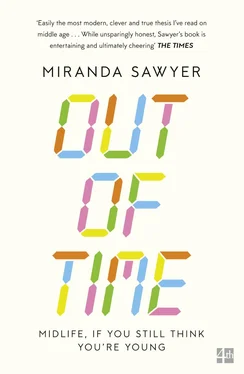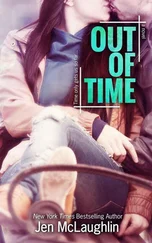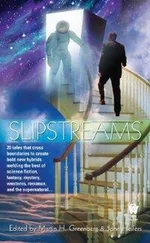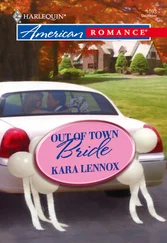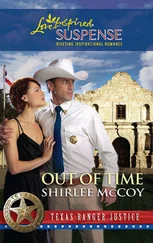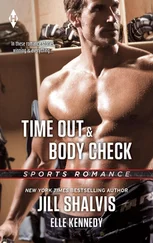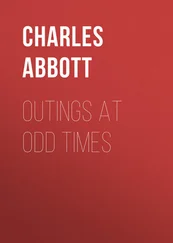When we’re young, we like to be scared by death, because it seems so remote. But in your middle years, it starts moving closer, nearer to you. Coming into focus. Becoming real.
When F was still a baby, after that moment in the kitchen, death started doing weird things in my head. It kept merging with maths. I was adding and subtracting, calculating how long I had left, how little time I had to do what I thought I had to do. Earn money. Fulfil my potential. Do whatever it was I should be doing, rather than worrying about my age and my life and what that meant.
Death maths. I was doing my death maths and I didn’t like the way the sums were adding up.
I started noticing the middle-aged men who said, ‘I’m going to live to a hundred.’ There were quite a few. The head of Condé Nast said this. A French actor. Eddie Izzard said it to me, in an interview, in a fabulously positive way.
‘I’m going to live to a hundred. Why not?’ he said, a man who ran 43 marathons in 51 days, at the age of 47, for a laugh. And then ran 27 marathons in 27 days, at the age of 54, for another giggle. Why not indeed? When Eddie said it, I was almost convinced. Maybe I, too, still had a long way to go.
But one day, when I was meant to be doing something else, I bothered to look up the stats. I saw the true death maths, and the death maths was clear. If you were born in the UK between the late 60s and late 70s, and you’re a man, then all the research says that your life expectancy is 80. If you’re a woman, it’s 83.
You can probably add on a few years if you’re middle class and don’t smoke. I thought that, too. After I’d read the research, I looked around online and found a more accurate life expectancy questionnaire. I filled it in. Carefully, I totted up my nicotine years, how much I drink, how much I exercise; I converted stones into pounds and pounds into kilograms. There were no boxes that referenced illegal drugs, or rubbish food, or terrible housing or love-life decisions. The questionnaire gave my life expectancy as … 88.
So. It doesn’t matter if you have just run the furthest you ever have in your life, or you neck kale smoothies every day, or you know some brilliant DJs. It doesn’t even matter if you yourself are a brilliant DJ, or if you are Eddie Izzard. At some point between the ages of 40 and 50, you and I will have lived more than half our lives. We have less time left than we have already lived. The seesaw has tipped. There are the facts. And these are the feelings.
It was the death maths that did for me, the pinpointing of the years left, that new (old) knowledge. It started a revving in my head, a pain behind my eyes, a loss of nerve so strong I could barely move. I’m not sure that anyone knew, though. I had dark circles round my eyes, I was tired, but so is every parent of a child under one. And, yes, I was tired because of F, but also because the panic – that dark, revving provocateur – came at night.
I would wake at the wrong time, filled with pointless energy, and start ripping up my life from the inside. Planning crazy schemes. I’d be giving F her milk at 4 a.m. and simultaneously mapping out my escape, mentally choosing the bag I’d take when I left, packing it (socks, laptop, towels of all types), imagining how long I’d last on my savings (not long, because I’d had children, so I didn’t have any savings). I’d be leaving the kids behind. Rediscovering the old me, the real one that was somewhere buried beneath the piles of muslin wipes and my failing forty-something body. I’d be living life gloriously. Remember how I was in my twenties? The travelling I did? That, again, but with wisdom …
Then I’d remember that I couldn’t leave the kids behind, because I loved them so much, and I’d start planning a different escape.
Even while I was doing it, I knew it was vital not to get involved in such thinking, that I really needed to stay put, to look forward. Certainly not hark back. If you keep staring at your past, believing your best times are done, you’ll be facing the wrong way for the next few decades. You’ll reverse into death, arse-first.
And, anyway, hadn’t I’d done those best times wrong? I would consider my younger self and shake my head. I’d decide on the turning points of my life and then spend hours bemoaning the way I’d dealt with them. What had I been thinking, refusing that job? Why did I waste so much time on that deadbeat dickhead? Why didn’t I prioritize what I really enjoyed, rather than trying to please other people? Why didn’t I push myself? What a waste! What a waster!
Sometimes, during the day, as I performed all the tiny, repetitive actions required of an adult when children are young – the wiping, the kissing, the picking up, the starting again – my mind would wander. Worse: it would assess . (No new parent wants assessment: they just want to get through.) I would assess my efforts – my life – so far, and all would come up juvenile and insubstantial. Grown-up epithets burnt in my mind, as though they were absolute truths. It would have been better to have your kids young. Buying a house with a garden is adulthood’s be-all-and-end-all. A good steady job, a good steady love life and a good steady pension are all vital for you to function in today’s world, and you should have established all of those by the time you were 30. At the latest.
In contrast, when I held up my own long-standing beliefs to the light, they seemed broken. The belief that convention was just that, conventional. That, if you and your family weren’t starving, money couldn’t make you much happier. That you were always better to go out than stay in. That a life packed full of experiences was more valuable than one packed full of possessions. I’d rushed around in my twenties and thirties because I’d wanted to enjoy myself out there, to live in the big world, rather than a small one based around acquisition. Where was the pleasure in contemplating the polished wondrousness of a wooden table, or a neatly maintained lawn?
In the middle of the night, when I wasn’t planning to run away, I found myself contemplating those pleasures with envy. We didn’t have a big table, or any outside space. We lived in a stuffed, scruffy flat.
I’d stuck with so many old prejudices – a hatred of wheelie suitcases, of drawer tidies for cutlery drawers – that I’d started to believe my prejudices were my personality. But my new-found late-night hobby of demented self-deconstruction made me see that they were not. They were merely affectations, kickbacks against my childhood and upbringing, the reactions of an overgrown teenager. An overgrown teenager with a family, a mortgage, a fridge-freezer, all that.
And part of my panic was caused by what a friend calls ‘the baby-cage stage’ – how small your world becomes when your child is small, and how manic and locked into it you are – and part of it was the fear of being over halfway through, and part of it was realizing that all the plans I had would remain unfulfilled.
Because I was middle-aged.
Still, could I be, really? There is something about middle age that is terrifically embarrassing. So embarrassing, in fact, that it cannot apply to me. Or you, either. We are of the mind to be young or old. There is cachet in both, even dignity. But not in between. Not in the middle.
Because we know middle age. It belongs to Jeremy Clarkson. It’s blouson leather jackets. Terrible jeans. Nasty out-of-date attitudes manifesting themselves in nasty out-of-date jokes. Long-winded explanations of work techniques that everyone else bypassed years ago. Micro-management of events that mean nothing – e.g. a cake sale. Useless competitiveness about useless stuff that actually boils down to an argument about status, such as Whose Child Is The Most Naturally Gifted? or How Amazing Was Your Holiday In That Villa Of Your Really Rich Mate? or Have You Seen Our New Kitchen? Christ. Who’d want any of that?
Читать дальше
